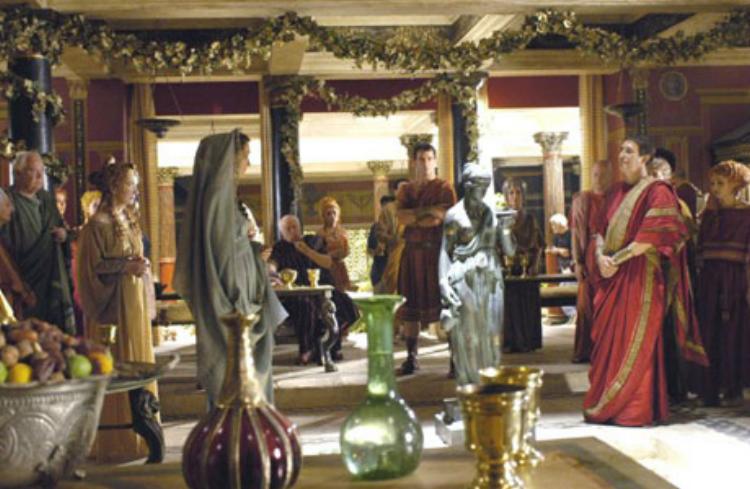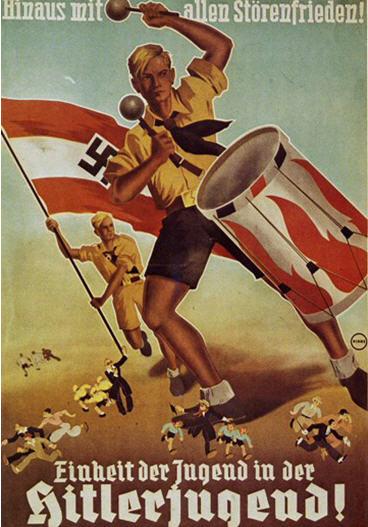Some time ago John Thames wrote, and quoted, the texts below:
Woman, to a very real extent, is the “natural born Jew” of the universe. She thinks that man exists to serve her the same way the Jew thinks that the gentile exists to serve him.
To my enlightened female critics: Since you do not like my opinions, let me infuriate you with some more clear thinking. Let me describe to you American society as it existed before “sex discrimination” became a problem.
In 1950’s America, women work to support men who stay home and raise the children. Women give men the house, the furniture, the car and all the money in divorce court. Women pay massive child support and alimony to automatic custody fathers. Women suffer 400,000 battlefield deaths in WW2 while Jimmie the Riveter works in the factories back home. Women go down with the Titanic so that men and children can climb on the life boats. Women work themselves into a seven year shorter life expectancy so that men can inherit 80 percent of all the personal wealth of the country, paid for by women’s effort. Now tell me why men should have all the high paying jobs too?
As for Dear Old Mommie and her burdensome diaper changing duties, preach it to me as you throw unwanted babies into the garbage can down at the abortion clinic. Your concern for your own child (the ones you decided to keep) is truly touching.
♣
Women are basically Jews. They think they can do no wrong. Far from being victims of sex discrimination, women are the most pampered, parasitical, good for nothing pieces of ass on planet earth. I enjoy The Spearhead, although it is completely gutless on the Jews. As to your idiotic female logic, it merely demonstrates a truth my mother once told me: “The worst mistake men ever made was giving women the vote. Women have no brains and by giving women the vote, men gave women the power to screw everything up.”
No truer words were ever spoken.
Feminism in ancient Sparta
Feminism is not a modern invention, as many suppose. It existed in the ancient world—and its consequences were largely the same as now. A classic example is the Greek city-state of Sparta.
It would shock most people to know that the famous warrior state was a paradise for women, relatively speaking but it was. The Spartans granted educational and economic equality to women—and it contributed greatly to their eventual downfall. Spartan girls were given the same curricula as the boys and encouraged to engage in sports. They were also granted the right to hold property in their own name and inherit property on an equal basis. The Spartan economy was largely agricultural. While Spartan men were away on war Spartan women ran the household and controlled the finances. As much as 35-40 percent of Spartan land was owned by women some of whom became quite wealthy.
Sparta suffered quite a decline in its birth rate during its decline. Some of this was caused by economic factors, such as limiting reproduction to avoid splitting up estates and inheritances. But much more, it was caused by the independence of women. Women were too busy being “liberated” to bother with the necessities of reproduction. In several centuries time, the total number of Spartiae (Spartan citizens as opposed to the helots and half-citizens) had declined from 7000 down to 700 (a 90 percent drop). Spartan sterility was remarked upon by many observers, particularly the Romans. The Spartans eventually reached the stage where they could no longer replace their losses in war. They were conquered by the Romans and ceased to exist. Spartan women were noted for their adulteries, particularly in their later stages of decline. There was no stigma attached to adultery and Spartan women could violate marital vows with relative impunity.
The similarity of all this to modern feminism is striking. The sterility, the free love, the equal educational and athletic opportunities, the female control of the economy are, in essence, the same trends observable today. And this brings up the key point: Totalitarian societies, past and present, do not enslave women, they liberate them. It was so in the ancient world; it was so in Jewish-Marxist Russia; it is true in the degenerating and decaying society of today.
Feminism and the fall of Rome
Feminism is not a new thing. Neither is it a sign of progress, as some imagine. It has flourished in the past with results as disastrous as presently. Many parallels exist between the feminist movement in the Roman Empire and the feminist movement of today. In the early days of the Republic, Rome was extremely patriarchal. The father, the Pater familias, held the power of life and death over his wife and children. This system lasted until roughly the end of the Second Punic war against Carthage. Then began a vast movement for the “liberation” of women. The war had, in a sense, been won by women. The Romans had lost the entirety of their manpower in three consecutive defeats at the hands of Hannibal Barcas. The final disaster came at Cannae where 60,000 Romans were surrounded and stabbed in the back.

When women had grown back the dead soldiers and the final defeat of Hannibal was achieved at Zama, Roman women demanded freedom. One of the first concessions granted to them was the repeal of the law against luxury. The repeal of this law allowed Roman women to flaunt their wealth in public. No longer did they have to practice frugality as matron of the household. Next they acquired the right to enter minor political office and the right to practice infanticide and abortion.
The Roman birth rate plummeted and vice and corruption spread among Roman men. A general strike against marriage ensued and the Emperor Augustus tried to revive reproduction with a bachelor tax. It was all to no avail. The situation became so outrageous that a famous Roman remarked that “We Romans, who rule the world, are ruled by our women.” The poet Juvenal remarked that the Roman aristocracy “divorced to marry and married to divorce”.
At the same time that this female liberation was taking place the Empire was overrun by swarms of slaves and racial aliens. Like many European cities today, it became difficult to find a genuinely Roman face in Rome. Diversity, like feminism, greatly contributed to the fall of the Empire. By the Empire’s end, the legions which had conquered the world were half Roman and half barbarian (rather like the American army today, where increasing numbers of Third Worlders proliferate). When Rome fell, the female irresponsibility which had so greatly contributed to the Empire’s downfall made a severe impression on the fathers of the Christian Church. They made a point to yoke females and to impose the virtue of chastity. Given what they had witnessed during the fall of Rome the misogynist viewpoint of the early Christian elders can hardly be criticized.
The parallels of all this to modern day America can hardly be disputed. Although America is not Rome the same trends, particularly that of the female unleashed, are evident. Women, throughout history, are either the bedrock of a social structure or the dissolvers of the social structure. In early America, as in early Rome, women were baby makers and home makers. In latter day America, as in latter day Rome, women are imitation men and unborn baby killers. The consequences are the same, then as now.
I could go on and on. It wouldn’t take a race-realist reactionary person but a few weeks of reading the “manosphere” to understand why white women will not join us [white nationalism] in large numbers. White men need to become “sex realists” too and understand that white women will not change until things are in a bad way.




